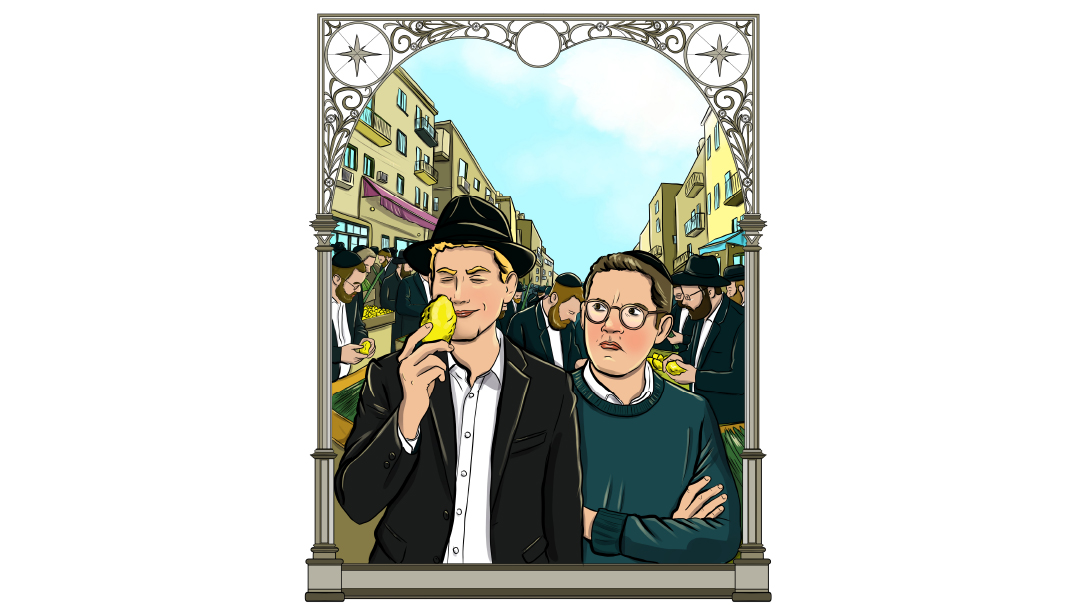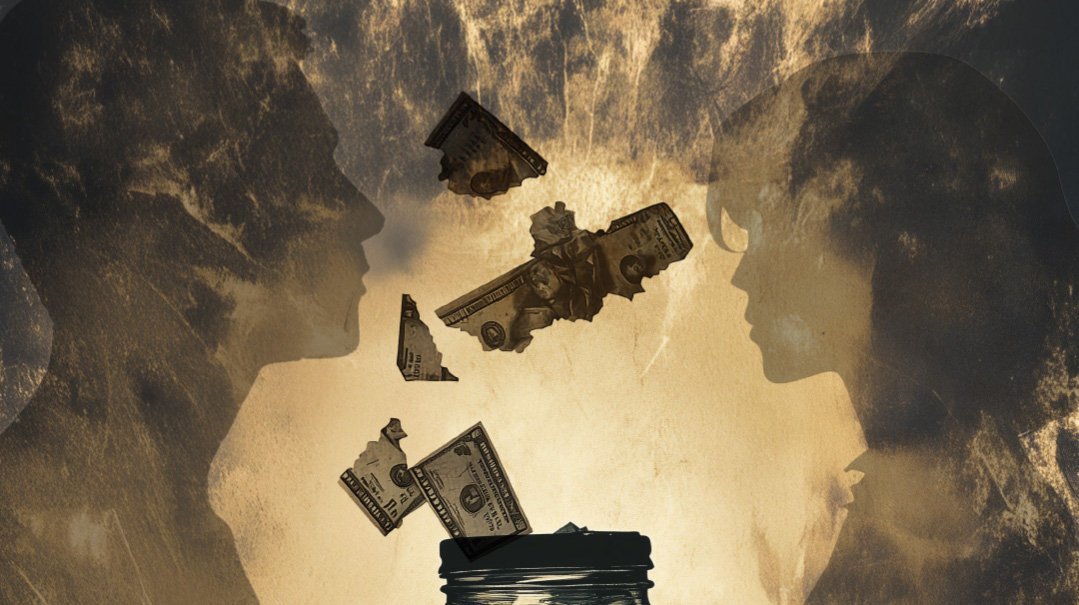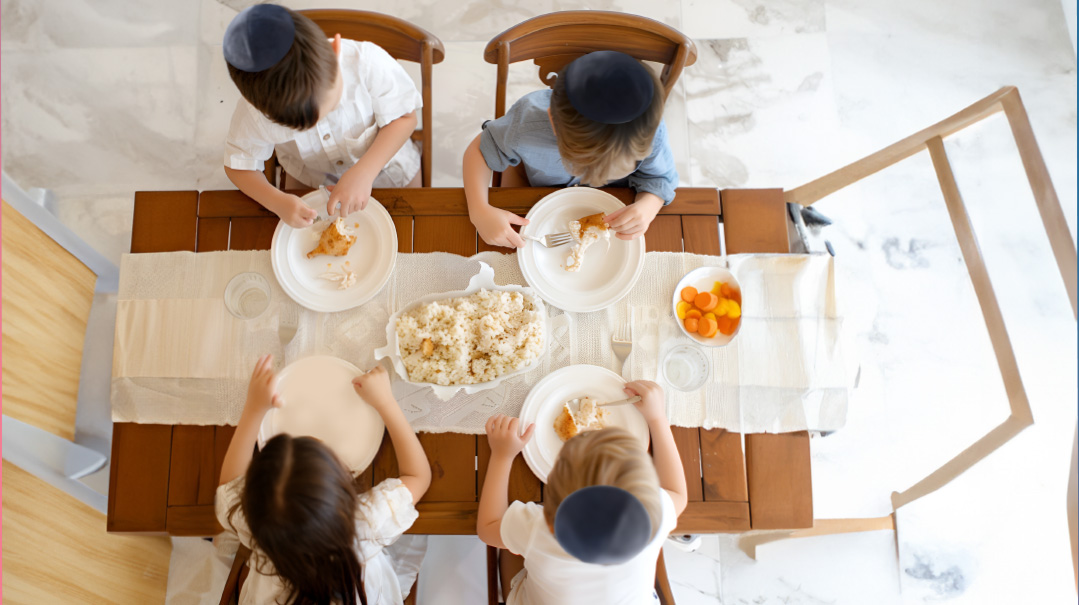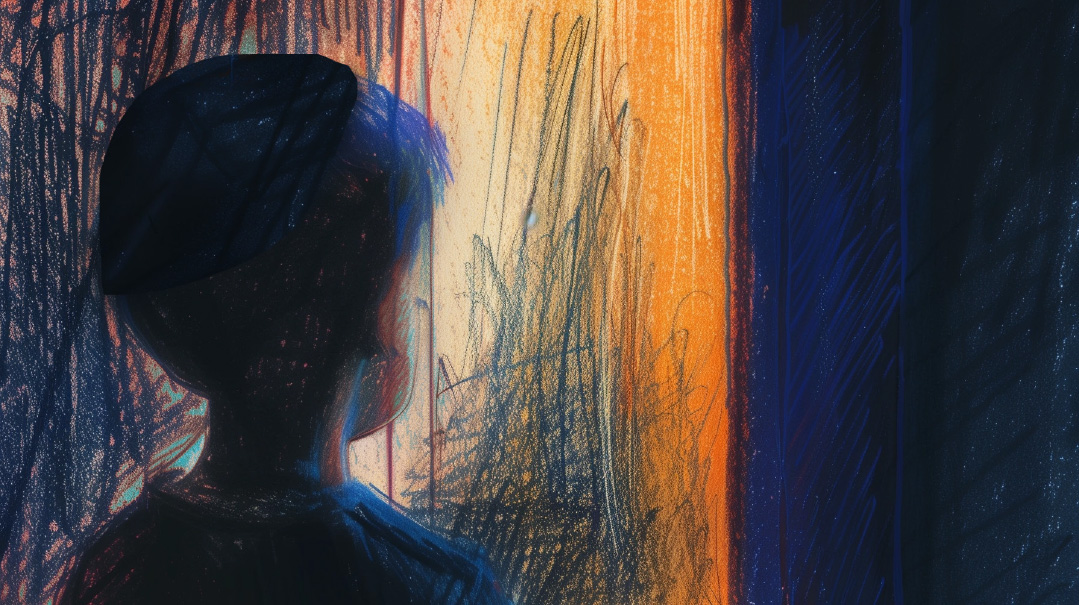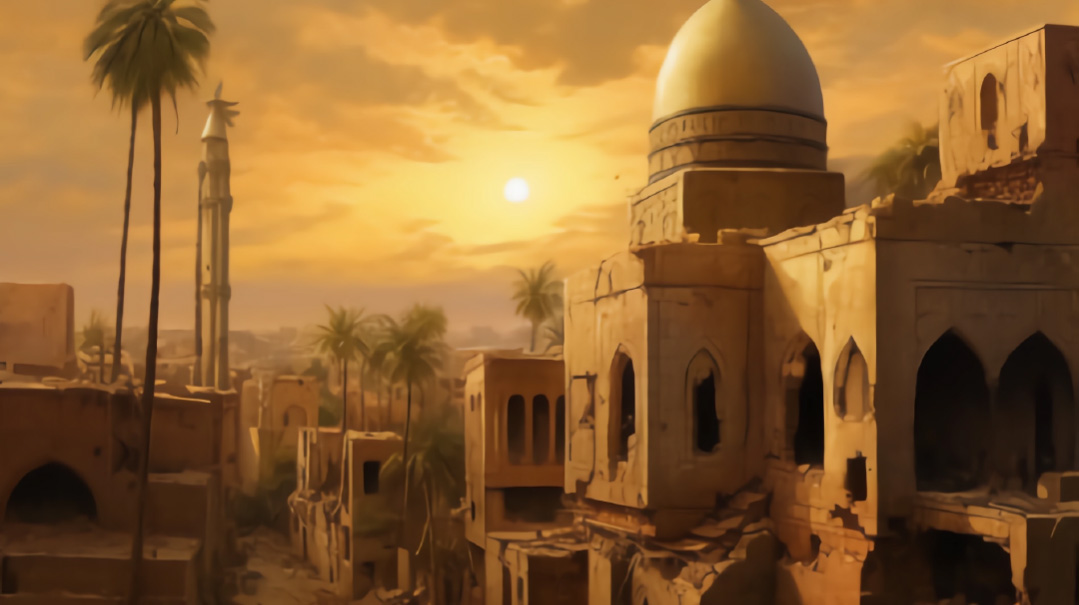Breathe: Part 3 of 3

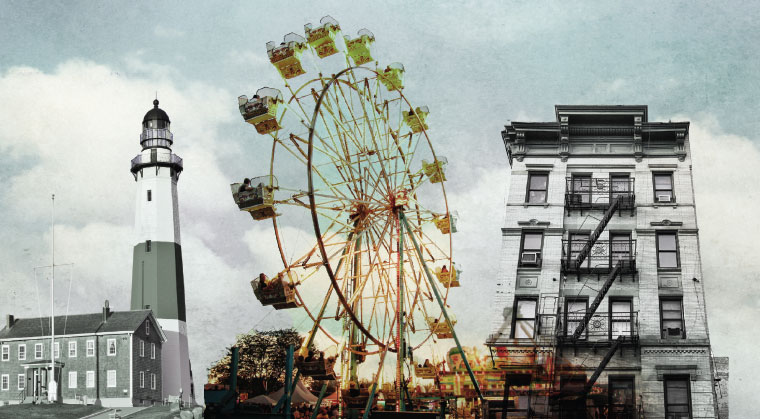
August 1969
When I wake, it’s a million hours later, there is sun spilling everywhere, and my body hurts like I hadn’t moved an inch all night. Maybe I hadn’t.
I walk across the carpet, open the French doors, and step out onto the veranda. The clouds that had filled the sky yesterday have all gone, and all I can see are sparkling pockets of green and long miles of white sand and water. Apparently Vi lives in paradise. The view is breathtaking. I could stand here forever.
“Remarkable, isn’t it?” Vi says, coming out to stand next to me.
I look down at the moorlands and the bluffs and the sea and contemplate the plethora of oxygen.
“There’s… it’s… a lot of space.”
Vi nods. “And it changes, too. Throughout the seasons, the shedding leaves and changing tide. And the local birds — some migrate south and then return. And the snow, Beth! It’s the most desolate, pristine white you’ve ever seen.”
Her eyes are all alive, the way I remember them. She points toward a large lighthouse at the end of the peninsula. “Even the old lighthouse changes throughout the day, with the light. If you sit here long enough—” She stops herself, then, looks at me. “You must be starving. You slept forever. Come downstairs for eggs.”
We talk over breakfast. She asks about the cousins and aunts and uncles, each one by name. She leans forward, hungry for detail, devours every bit of information. Vi listens intently but doesn’t share any information herself, which is completely bizarre. I think this person who speaks in short monotone sentences, her voice scratchy and low like a dull pencil across paper, is an impostor. Vi is supposed to trill, she is supposed to plunge and rise, she is supposed to have glitter stardust trailing her as she moves. She is no longer electric, the woman across the table. She is quiet pastels and I feel sad for all the paint that’s rubbed off. I fill in the empty spots by talking. And talking and talking.
“And Miriam had a baby. A girl — no, a boy,” I say.
“Well, which is it?”
“I honestly don’t remember!” I laugh and she smiles.
She doesn’t ask about Bubby and Zeidy so I don’t bring them up. When we run out of relatives to discuss, I ask her about her life in Montauk.
“Oh, it’s very lovely. Wonderful people.” Her face changes, her lips purse a bit, she grows even more proper and distant. “You know, since Robert’s death… well, of course, things changed.” She gets up to clear the plates. “But lovely people. Really.”
“So you have friends?”
“Oh, yes. Sure.”
“Can we go to the fair today?”
Vi turns on the water to wash the dishes, her back very straight.
“Melody wanted me to come. Do you know which fair she was talking about?”
“The Ladies Village Improvement Society Fair,” Vi says flatly. “I suppose we can go.” She doesn’t seem very excited about it.
“I can go myself, if you don’t—”
Vi turns to look at me, narrows her eyes. “I said I’ll come. Go get ready.”
A half-hour later we’re in Vi’s Camaro, on our way to East Hampton.
“I met your cousin yesterday. Howard.”
Vi’s eyes open wide for a moment. “Howard Gardenere?”
I shrug. She adjusts her hands on the steering wheel.
“Robert’s cousin, Beth. Not mine,” she says in a tone that leaves no room for discussion.
I spend the rest of the ride watching the scenery, quaint shops, large trees, slow-moving people. By the time we reach the fairgrounds, I feel utterly relaxed.
“Is it always so peaceful here?”
Vi pulls into a parking spot. “Always.” She smiles. “That’s why the writers and the artists and the hermits come here. Time moves slowly in these parts.”
Three women sit at a table at the entrance to the fair, selling tickets.
“Vivian, how good to see you,” one of them drones, wearing a tight, fake smile.
“And you, Mrs. Tweed,” Vi says in a syrupy voice. She hands her some money in exchange for tickets.
“Oh, you make me feel old. Do call me Linda.” She turns to me. “And who have we here? A sister?”
“Almost,” Vi answers. “Have a wonderful day, Mrs. Tweed.”
Maybe it’s my imagination but I think Vi emphasizes the Mrs. part. Linda’s scowl follows us all the way into the fair.
“What does she have against you?” I whisper.
Vi looks surprised by the question. “Why… nothing at all. She’s related to the Astors.”
“So?”
“The bluer the blood, the greater the snub.” I sense her hesitate, like she wants to say more, but she stops herself. “Don’t mind any of these old busybody ladies, Beth,” she says quickly. “What would you like to do?”
I scan the grounds; it looks like any other fair, just less grimy. The booths are made of sturdy wood, topped with red-and-white-striped canvas awnings, perfectly placed in neat, glistening rows. I scan the crowd and spot Melody a moment before she lunges toward me.
“Oh, Bronx, you came!” She links her arm with mine and pulls me toward the cotton candy stand. “We won’t be a minute,” she calls over her shoulder to Vi.
She drags me around to the back of the booth and into a little knot of kids standing around. It’s the gang from yesterday and they smile when we come into view.
“She found you,” Howard says, the same half-amused expression on his face from the day before.
Melody looks as if she’s bursting at the seams, hopping around excitedly.
“John’s got his driver’s license. We weren’t sure he’d pass — he’s failed twice already — not his fault of course, he’s blind as a bat in one eye, but he muddled through and he got it this time. He passed! We’re free!”
“Congratulations,” I say to John.
“And there’s to be a huge fair!” Melody continues.
“In honor of him getting his license?”
“No, silly. In honor of fun! And peace! And the end of baby killers! In the Catskills.” Melody pulls out a flyer from her pocket and reads aloud, “The Woodstock Music and Art Fair.” She hands it to me. “How old are you, by the way? Never mind, don’t tell me. You look 18 and that’s all that matters.” Her pale face is flushed pink with excitement. “You must come with us. You can be our navigator!”
I scan the flyer, and raise an eyebrow. Bethel. I can barely restrain a snort, thinking of this group on a muddy, fly-infested dairy farm.
“Bethel, huh.” I pass the flyer back to her.
“You know it, then? Oh, we thought you’d know it!” Melody claps. “I figured, Jews in the Catskills…”
She trails off and her eyes roam. Howard shakes his head slowly, his mouth twitching at the side.
“Are like WASPs in the Hamptons,” I offer, completing her thought. A smattering of relieved laughter erupts. “My uncle Max lives there, I’ve visited a few times. It’s, uh… rural. Not like anything you all are used to.”
“Maybe we aren’t looking for something we’re used to,” Howard says, standing up straighter. His eyes are a brilliant color; too light to be brown, they are almost copper, and they flash as he speaks. “Maybe we just want to be normal for once.”
Poor little rich boy. Indignation looks awfully silly on him. Howard looks away and lets out a tired laugh.
“I know what you’re thinking. ‘He’s a Gardenere, he’s set to inherit half the real estate in New York City. What’s he complaining about?’ ” He plucks a leaf off the tree, crushes it in his hand. “Let me ask you this, did a chauffeur follow you to Montauk? Is every move you ever make recorded and reported and analyzed? No? I didn’t think so. I can’t move an inch without feeling the noose.”
He sits down hard on a mound of earth and I can sense how trapped he feels. It’s odd that I should have anything in common with these kids, that our dilemmas could be so different and yet our feelings so mutual, all at once.
“I’m sorry. You’re right,” I mumble. “It’s hard, feeling like you can’t breathe.”
“We’re leaving tonight at midnight,” Melody pipes up. “If you decide to come with us, meet us on the corner of Ditch Plains and Forrest at 12 a.m. Don’t tell a soul what we’re planning. Not even Vi, okay?” Melody gives my hand a squeeze and the group begins to disband.
Howard hangs back for a moment. “I hope you’ll come,” he says, with obvious sincerity.
I hesitate before answering; there is something terribly nice about being included.
“Come where?” says a voice from behind me.
I spin around to find Vi standing there with a fake smile pasted on her face.
“Nowhere,” I answer quickly.
Vi’s eyes jump from mine to Howard’s.
“Hi, Howard.” She nods toward him.
“Hello, cuz.” The intensity from before is gone, his lazy half-smile back.
“How’s your mother?”
“Overbearing as usual, thanks. I’ll be sure to send regards.” He gives me a little wink before walking away.
“What was that all about?” Vi demands after Howard disappears into the crowd.
I walk quickly back toward the booths. “Oh, look, there’s a dime pitch booth! Let’s do that one,” I say, swerving through the throngs of people.
“Beth.” Her voice is dangerously low as she follows me closely.
“No?” I scan the grounds. “What about that one? You’ve gotta get the ping-pong ball into the fishbowl to win the goldfish. Fancy a pet?”
I glance at Vi from the corner of my eye. She looks livid.
“Let’s do the photo booth,” she says firmly, nudging me toward the booth just as two little girls exit. Cutting the line, she pushes me inside. I sit down on the hard bench while she pulls the red curtain closed behind us. Then she turns to face me.
“Why are you here?” Her eyes are blazing green, a bit of black liner smudged in the corners. The camera flashes.
I shrug, which only annoys her more.
“Do you understand the position you’ve put me in… if anything… happens to you?”
Flash.
“You sound exactly like Ma. What are you all so worried about?” I know the answer, of course, but I need to hear her say it out loud.
She throws up her hands. “Your impulsivity. Thinking only after you act. Following your heart instead of your mind.”
She hesitates and I can almost see the words on her lips — turning into me, that’s what we’re worried about. My heart gives a little lurch, because despite all her lazing about in paradise — lovely people and peaceful town and all that — the truth is that she has lost everything. She can try to hide it, but the pain peeks out on its own. The camera flashes again.
“Have you considered for one second that they might think I lured you here? To… to… influence you… And then, my chances of— if there ever was a chance—” She stumbles over her words, then swallows and straightens.
Flash.
“So I’m asking you why you’re here. Why did you come?”
“You invited me,” I answer.
Vi’s eyes widen. “Excuse me?”
The curtain opens. “All right, gals. Out you go. I’ve got a line out here,” says the squat, sweaty man running the booth.
“One minute.” Vi pulls the curtain closed again. “What are you talking about?” she demands.
“The postcard you sent. With the leaf.”
Vi is stunned into silence. She sits down on the bench next to me.
“Oh, for Heaven’s sake. Only you could misconstrue that empty postcard as an invitation,” Vi says quietly.
I blush a bit, but hold my ground. “Well, it was. Wasn’t it?”
Vi looks up at the ceiling, a bit of canvas pulled taut over the beams and a sheet of tin. She lets out a long breath, then turns to me. “Yeah. I guess it was.” Then she laughs. Her laughter makes me laugh.
The irate photo booth operator pulls open the curtain, his face flaming. “All right, folks! Let’s go.”
Which makes us laugh even harder. We stumble out, the man hands us our photos, shaking his head.
“Crazy people,” he mumbles.
Vi studies the photos while wiping a bit of moisture from her eye. “Goodness, you do look like me.” It is almost a whisper.
The people waiting on line are staring at us like we’re moon Martians.
“Let’s go,” I say to Vi.
“Let’s.”
There is a thawing throughout the rest of the day, as if the laughter at the fair had cracked the frigid impasse between us. Vi makes lemonade and sandwiches and we nibble chocolate bars while rocking on porch chairs like two Southern belles. Vi teaches me a new card game, and I show her all the card tricks I know. I tell her about Hannah and tenth grade and ninth grade too and about the heat in the Bronx. She doesn’t remember the city being very hot and I tell her she’s lost her marbles, which reminds her that she has Robert’s collection of marbles somewhere.
“Do you miss him?” I ask her.
Her face closes up immediately.
“Of course I do,” she snaps back, though she doesn’t sound very convincing. I wonder if she sees his family. It doesn’t seem like it, it doesn’t seem like she sees much of anyone.
We rock in silence then, while the crickets and katydids perform in the trees, and the fireflies rise and fall around us like a million flickering candles in the dark.
She is hurting. I can practically hear her heart humming in pain. But she won’t admit it. She wants to pretend she’s just fine. Her pride makes me want to punch something . A chill creeps into the air and I rub my hands together for warmth.
“It’s getting cold. We should go in,” Vi says.
I nod.
Vi holds the screen door open for me. “So you go back tomorrow.”
“I guess so.”
“I’ll take you to the train in the morning.
“All right. Thanks.” I bounce a bit on my heels. “I guess I’ll get going to sleep then.”
Vi nods. “I’m going to straighten up down here. And then I’ll go to bed.” She holds up the sticky lemonade pitcher. “Sleep well.”
I climb the stairs, two at a time, then sit at the edge of the bed, watching the hands of the clock move ever so slowly.
At 11:30 I pull on a sweater, take the paper I had prepared, and stuff it in my pocket. Being very careful not to wake Vi, I tiptoe down the hallway, then down the stairs ever so carefully. It’s dark at the bottom, so I press my fingertips against the wall to guide me. I’m nearly at the front door when I hear a muted click. There is a sudden burst of light on my face.
“You must think I was born yesterday.”
Vi’s standing by the front door with a flashlight.
I shield my eyes and she grabs my hand. My heart is racing so fast I can barely speak.
“Come on,” she steps outside.
“Where are we going?” I ask, struggling to keep up with her in the dark.
She doesn’t answer, just keeps walking down the dark path toward the bluffs, then down a slanted bank and onto the sand. I follow her all the way down the beach to the water’s edge, where the waves are so loud they drown out the sound of the blood pulsing through my ears.
“Can you see the island over there?” she asks, pointing out into the sea.
The moon is full and bright and I squint trying to make it out.
“Maybe. I think so.”
“Howard, Robert’s cousin, will own that whole piece of land one day. It’s been in his family since the 17th century. He’s heir to a fortune that would make your eyes roll in your head.”
I sit down on the sand and Vi plops down next to me.
“You like the space out here, don’t you? You must think it would be nice to live on a private island, in a mansion, with all the money in the world.” She is sparking mad. This is the Vi I remember.
“Gosh, Vi, cool it. I wasn’t—”
“How long do you think you’d enjoy floating around in all this? A month? Two?”
“I wasn’t—”
“A year?”
“Stop, Vi! I was just going to give them Uncle Max’s address in Bethel, in case they needed help.” I pull out the note where I’d scribbled his information. “They’re going to the Catskills. I wasn’t running off. I wouldn’t do that. Has it occurred you that I may not be quite as dumb as you are!?” I say it because I want it to be the truth, though I’m not sure it is.
Vi blinks hard against the blow, looks away.
“They helped me find you, I felt like I should return the favor,” I mumble.
We sit watching the waves for a minute. I pull off my Keds and push my feet into the sand, watch them disappear.
“I met Robert when I was only a bit older than you are now,” Vi says softly. “Seventeen.”
That surprises me. I thought she’d been older.
“Do you think I planned it? Do you think I ever thought, the day I met him, that I would marry him? That’s not the way it works, Beth. We were just friends. It was harmless.”
I let out a long breath, like I’d been holding it forever. “I told you I came here because you invited me. But that’s not the whole truth. Ma doesn’t let me breathe. She’s scared. When she looks at me — she sees you.”
Vi nods. “I figured.”
We watch the tide come crashing in and sweeping back out again.
“I’m not going to lecture you.” Vi sighs. “I’m not going to tell you they’re bad people, the way my father did. That every goy is a ganef and a drunk. Because it won’t work. And also, it’s not true. I’ve met many kind gentiles, many good people.” She pauses for a long time, staring up at the sky. “But they aren’t our people.”
My head snaps up. Her back is perfectly straight, her eyes are dry as far as I can tell in the moonlight, though her lips seem to wobble just a bit when she speaks.
“I didn’t think that point was significant before I married Robert. Goodness, not now in today’s world. I thought harping on ancestry was so… so backward.” She lets out a laugh that sounds like she’s choking on a bug. “Let me tell you something that you can’t understand being 15 — and being you. There are more important things in life than space. In fact, you can have all the space in the whole world and still feel like you can’t breathe.” Vi’s face is like stone. There is anger in her voice that I can’t understand because she did this to herself. No one forced her. She chose this.
“I wasn’t prepared for how alone I would feel after my marriage. It was like battling in an ice storm by myself. All the parties and the events and the traveling. I thought Robert would be enough to fill the void of my family, but his life was so different, so formal and stiff — so unlike the way I grew up. Before Robert died, I thought to myself, If I have to do one more day of this, I won’t survive. I was going through the motions, but dying inside, watching everything through a pane of glass. I couldn’t handle living on the outside.”
“Why did you have to? You look the part well enough. Why were you on the outside?”
Vi is quiet, thinking.
“I don’t know because I don’t quite understand it myself. I can’t give it a name, or explain the feeling, really. I think it’s bigger than genetics or history or even my choices. We are different. We’ll always be different, and I had to face that fact being married to Robert, every single day. And as time went on, I found my thoughts inexplicably entwined with everything I had once thought so silly. Sabbath candles and the Passover Seder, all the rituals I had never connected to. My past was like a wound that wouldn’t heal, and I felt so trapped in a world that wasn’t my own, so alone, and I missed everyone so much…”
“And now?” I prod.
“He’s gone. I have no more social obligations. His family wants nothing to do with me. I’m fine.”
“You’re not.”
She doesn’t respond. I take a deep breath and brace myself.
“Come home, Vi. Come back with me.”
I can feel her stiffen against the suggestion.
“I can’t.” She shakes her head. “I’ve weighed all the options a billion times. Your grandfather made it very clear I would never be welcomed back. Ever. And… I think I’d rather stay here and pretend this life is something I want than try to come home and have him send me away. I can survive this, but not that.”
There is the distant sound of a ship’s horn. A plane crosses the sky ever so slowly.
“So this whole thing, bringing me down to the beach to yell at me. What are you saying exactly?”
Vi looks at me. “I’m saying don’t be fooled by Melody or Howard or this.” She opens her palms. “I’m saying that at the end of the day, your heritage and your family are everything. They’ll carry you through your whole life.”
“Everything,” I repeat.
“Yes.”
“So. If family is everything, then don’t you think they’re worth fighting for?”
Vi looks away. “You don’t understand. It’s complicated—”
“It’s not.”
“How did this become about me? I was talking to you,” Vi snaps.
“It was always about you,” I spit back. “What were the words you used — inexplicably entwined? That’s what family is, even if they run and hide at the very end of the earth.”
Vi looks stricken, then her face grows soft. “You’re awful,” she says with a laugh. “Just awful.” She pats my hand.
I lie back in the soft sand. “So you’ll come with me, then.”
Vi doesn’t say anything, but something has changed.
“You know — there’s nothing up there,” she says some time later, jutting her chin toward the moon. “It’s just desolate rock.”
“I know. Zeidy couldn’t stand the whole thing. Better to use all that money to explore the living earth, he kept saying.”
“Well, they had to see for themselves. We had to see. Humanity, you know, to make sure.”
“Yeah.”
“But maybe he’s right.” Vi yawns.
She’ll come with me. And she’ll tell Zeidy everything she told me and he’ll forgive her. Or maybe they’ll fight first. She’s flint and he is steel. There will be fire. But in the end, it will be okay. Ma will relax because Vi’s not all bad, or dead for that matter. And I am not Vi, anyway.
At some point I sleep, with all the space huddled around me, a tiny speck on the massive shore, and it’s far less comfortable then I imagined it would be. I wake with the birds, while the sun is just a pale pink semicircle emerging from the water. The dawn is so startlingly beautiful on the beach that I wonder how I’d lived this long and not seen it before.
“The sun rises in the Bronx too, Beth.” Vi yawns as we walk back up to her house.
“You don’t say.” I roll my eyes.
But she’s right of course. It must.
“You just need to open your eyes in time to catch it.”
“ ’Kay,” I answer seriously. “I will.”
And I think it’s as much a promise to her as it is to myself.
(Originally featured in Family First, Issue 630)
Oops! We could not locate your form.






